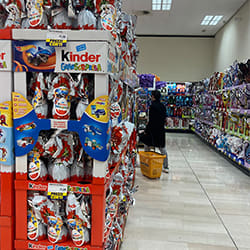The day after I arrived at the Hotel Pantanal Norte I went on a Jaguar safari to see jaguars in the wild. The Cuiabá River is on the border between the states of Mato Grosso and Mato Grosso do Sul to the south. The river you can see from the hotel grounds is the Cuiabá River and the tour started from there before going up and down its waters.


I was so excited I woke up early on the day of the tour. It was the end of June, so the tour season had only just started, and this year there had been a lot of rain up to March, so there was the concern that we might not be able to see many jaguars. Jaguars come out of the bush into the open by the riverbanks to hunt crocodiles. That’s what we were going to see. My husband and I started the tour on a 4-seater motorboat we had booked beforehand at the hotel. The skipper was a seasoned hand having worked at the hotel for about 30 years. He scanned left and right looking for jaguars as he steered the boat along the river. We were quite busy taking photos of the wildlife, like iguanas, small bats hanging from tree trunks, birds flying close by, and crocodiles swimming right up close to the boat.


There were a number of other boats on the river carrying sightseers, so the skippers stayed in contact with each other by radio. After about an hour one of them said he had seen a jaguar, so the other skippers hurried to that spot. The first jaguar I saw was a long way away and I couldn’t see it clearly, but I saw the bushes moving, so I could tell the jaguar was on the move. We traveled further along the river for a while in the hope of getting a closer view of a jaguar. The second and third jaguars were walking along the riverbank. I could only see their heads and sometimes other parts of their bodies, so although I had seen jaguars, my hopes only grew: I wanted to see one from a little closer up. We returned to the hotel for lunch before going out on the boat once more. I had heard that the jaguars were easier to find in the afternoon, so my eyes too restlessly searched for them as we moved along the river. And then there was word on the radio and the boat picked up speed. In my mind I was calling out “Quick! Hurry!” Upon which before my eyes appeared a large and impressive jaguar. All the skippers gathered there cut their engines and the sightseers focused intently on taking photos, either with mobile phones or cameras with telephoto lenses. Everyone watched the jaguar intently, not saying a word. At first it rested gracefully on a tree branch, then we watched it slowly stand up, walk along the branch, then plunge into the river to hunt crocodiles. There were more jaguars swimming by the riverbank. That afternoon I got a good look at 4 jaguars, each in a different place. The jaguar is a truly impressive animal with strikingly good looks.
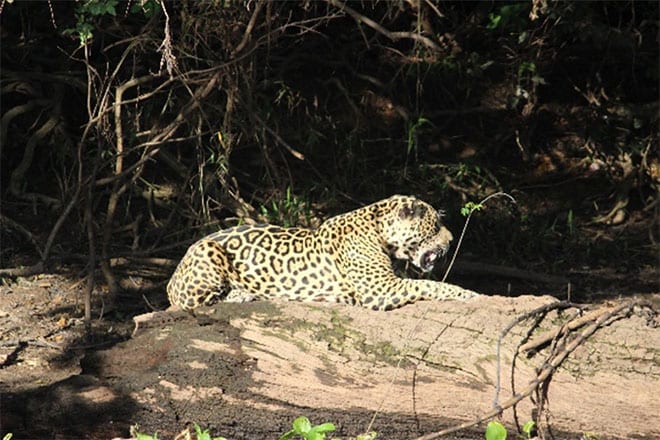

We had been going up and down the river morning and afternoon for 8 hours, but the time passed in a flash. The birds and other animals in the wild were all beautiful, so full of vitality.
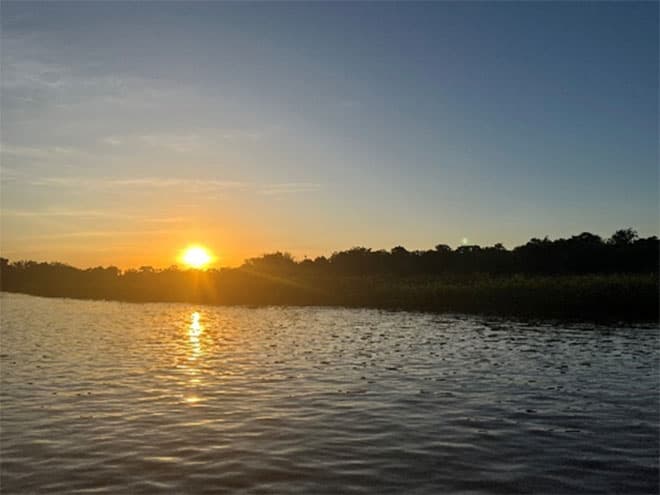
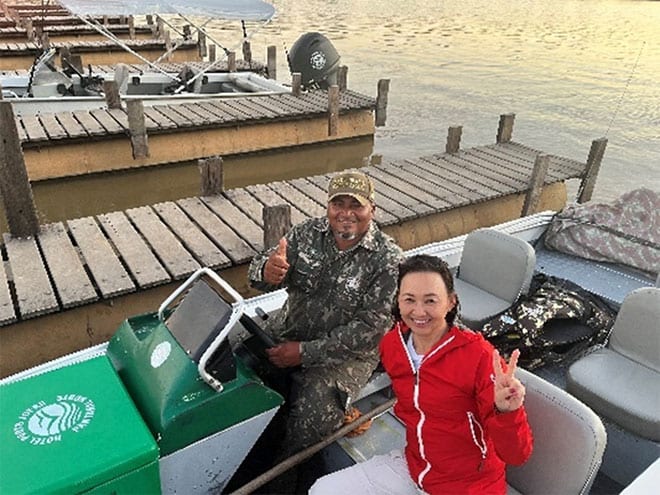
There was a lively discussion about the Pantanal with the hotel owners and staff over dinner that night. But we heard that a number of different problems have now emerged even here in the Pantanal. Although it is called a major wetland, severe drought can sometimes cause a serious lack of water, and in the second half of 2020, a huge fire spread, burning about 39,000 square kilometers of the Pantanal. I had heard about that on the news at the time, so my heart ached hearing about it once again from the local people. I certainly saw remnants of the fire along the Transpantaneira. Fires break out every year now apparently.
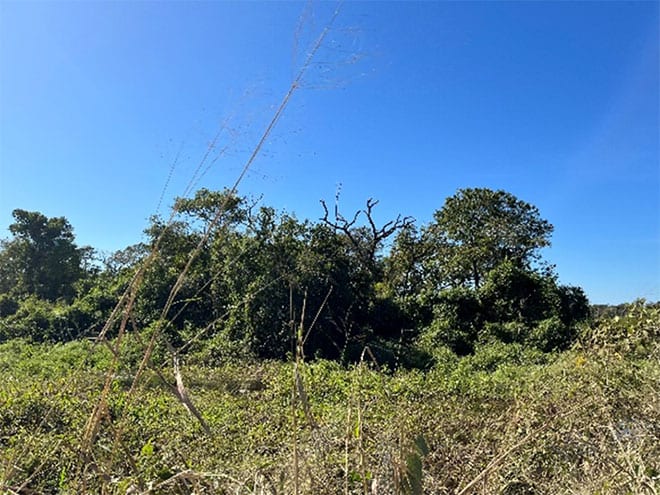
I am thankful for nature’s capacity to regenerate, and I hope it goes on protecting the surviving animals.
I had a meaningful and moving experience, so I was sad leaving the Pantanal.















